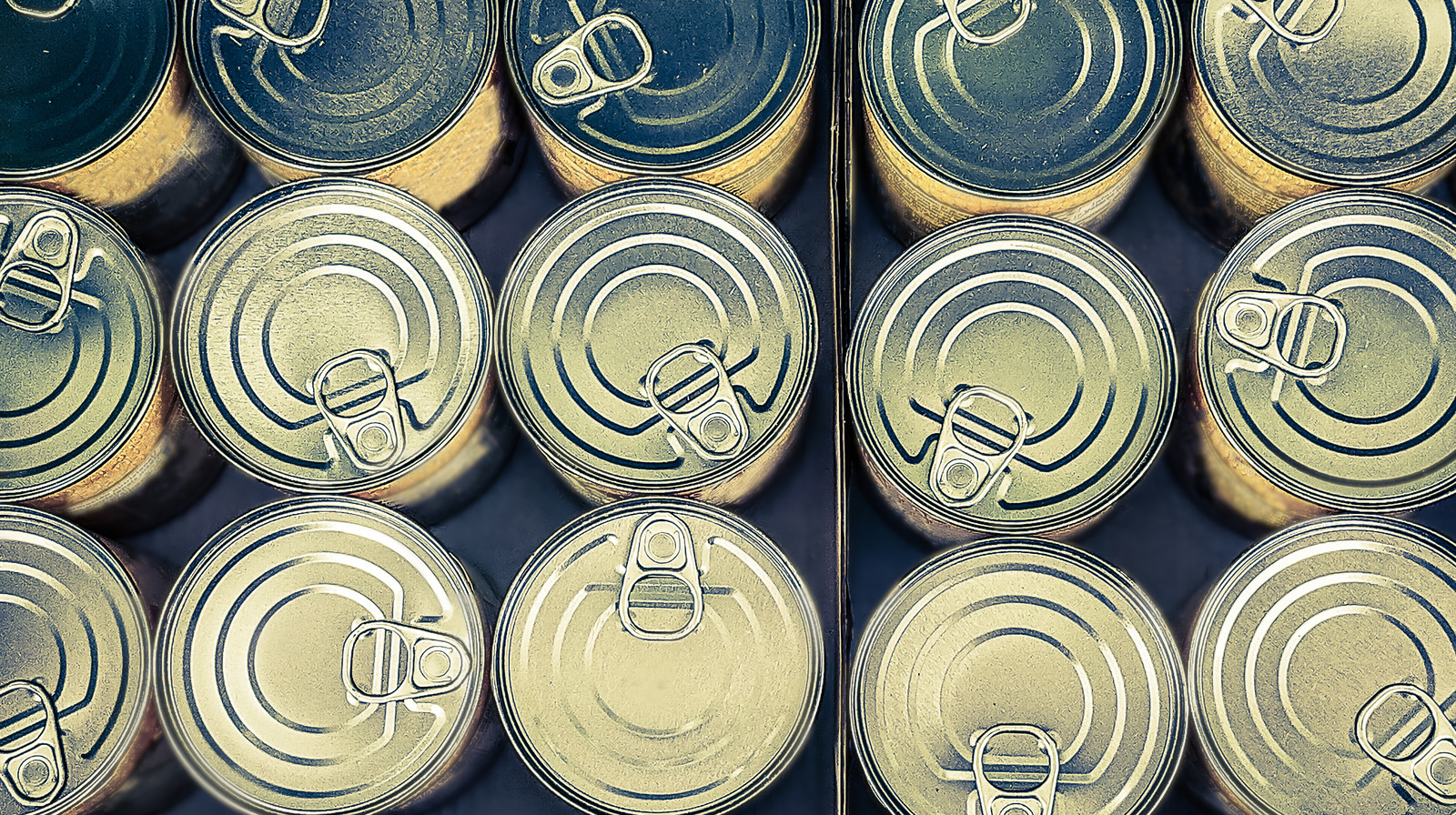
Cans bulge for many reasons. Some of them are harmless, like freezing or overfilling at the factory. Others are less benign.
Botulism isn't your standard weekend-on-the-toilet variety of . describes the neurotoxin produced by Clostridium botulinum as "one of the most lethal substances known." It causes difficulty breathing and paralysis, and, without immediate medical care, it has a high mortality rate.
Botulism is rare, and finding it in store-bought food is even rarer. notes that 90% of cases come from home-canned food. However, you should never dismiss a bloated store-bought can.
Discard cans that are leaking or seriously damaged, too, and you should always toss canned food that spurts when you open it or has a strange smell. Small dents are usually okay, but treat them with caution. If you do find a bloated can, don't open it — even out of curiosity.
), you should double bag it in sealed plastic bags, take it outside, and put it in a trash can ( recycling). Check to make sure that it's not easily accessible to humans or animals. Overkill? Nah.
Even microscopic amounts of the neurotoxin can be deadly. What are the symptoms of botulism? , botulism usually appears within 12 to 36 hours. The toxin attacks the nervous system, causing paralysis that spreads from the top of the body down.
As the toxin spreads, it causes weakness in the neck and arms. Next, it starts to affect the lungs, which can lead to respiratory failure and death. If you think you have botulism, seek immediate medical care.
Note that contaminated food doesn't necessarily have a distinct taste or smell, but err on the side of caution — especially if you've been eating food that was canned at home. To stay safe, follow precautions while canning food at home ( ), check products before opening them, and keep an eye on expiration dates. Store cans in cool, dry places — .
To learn more about botulism, visit the or read through . You can also call poison control at 1-800-222-1222. And, as always, .
Recommended.














